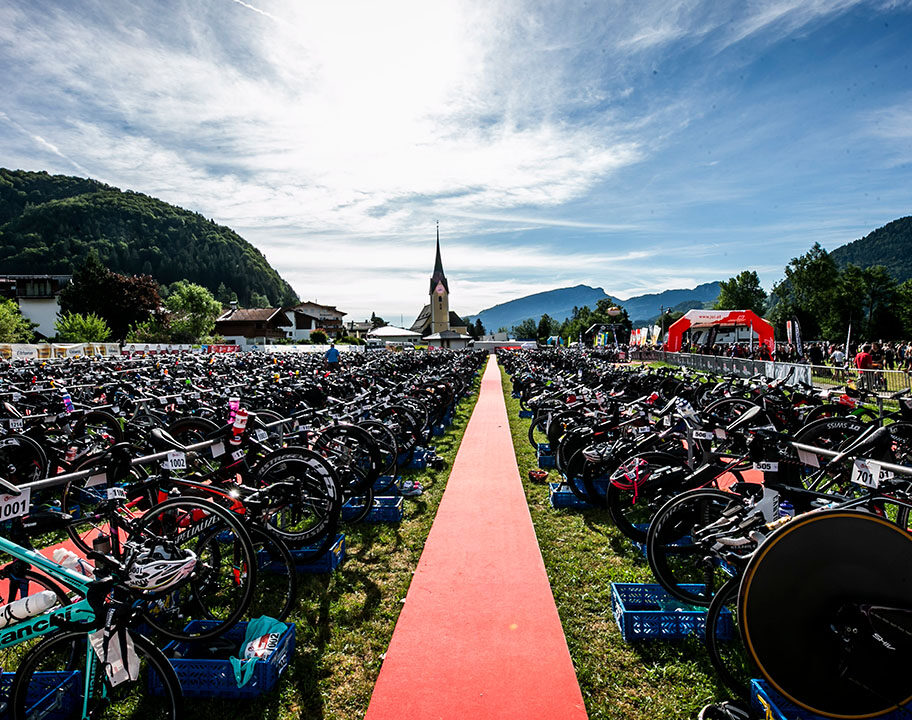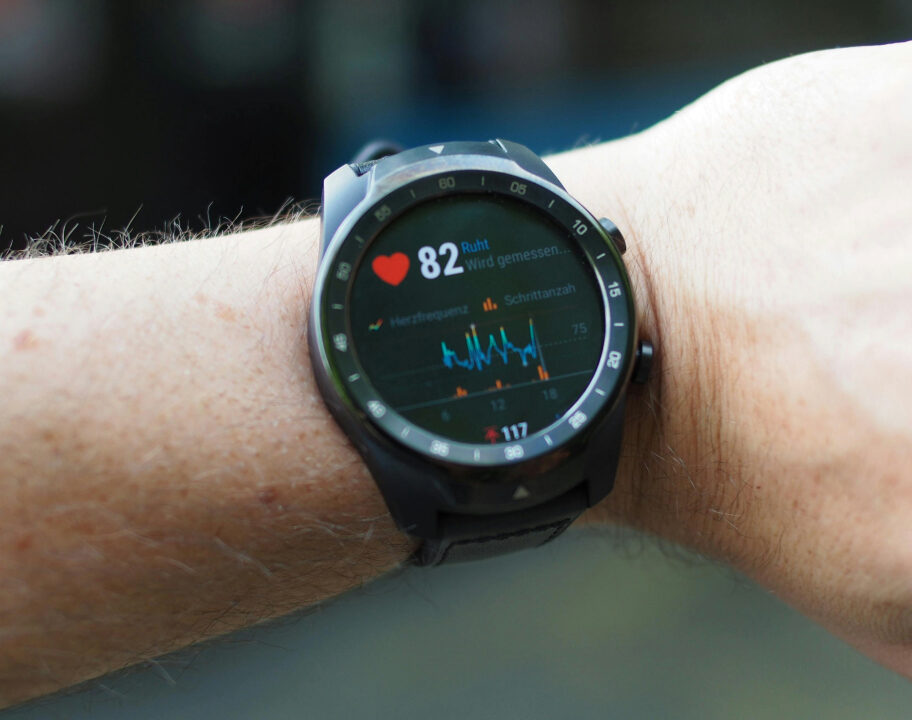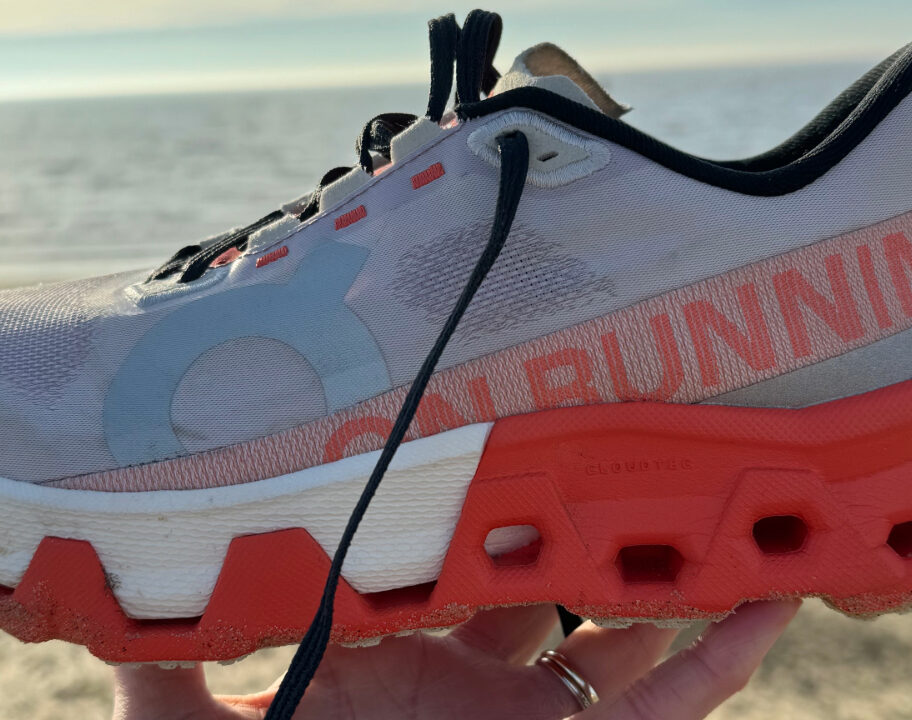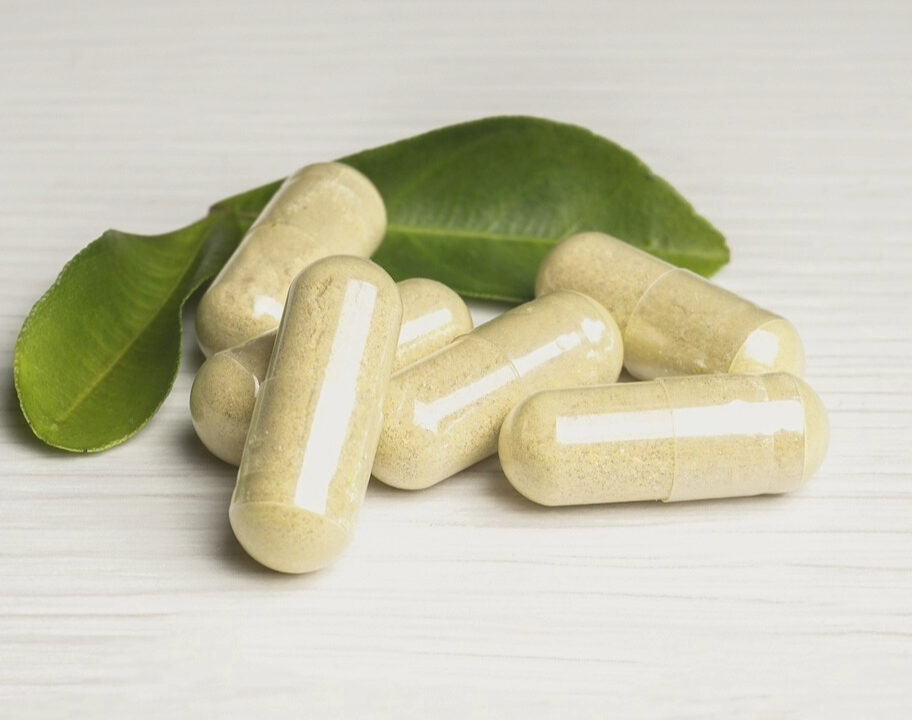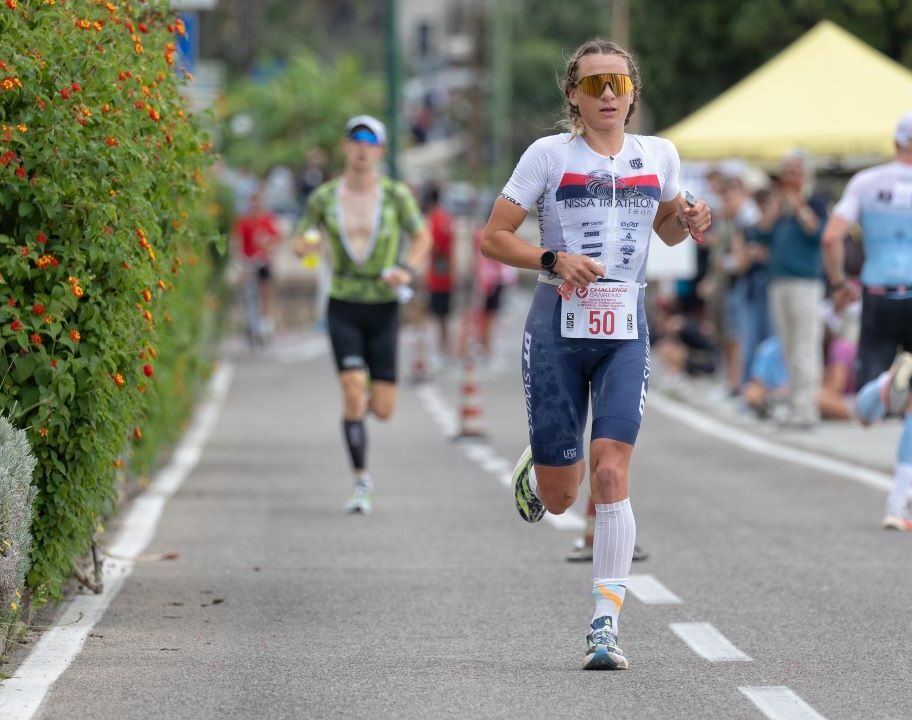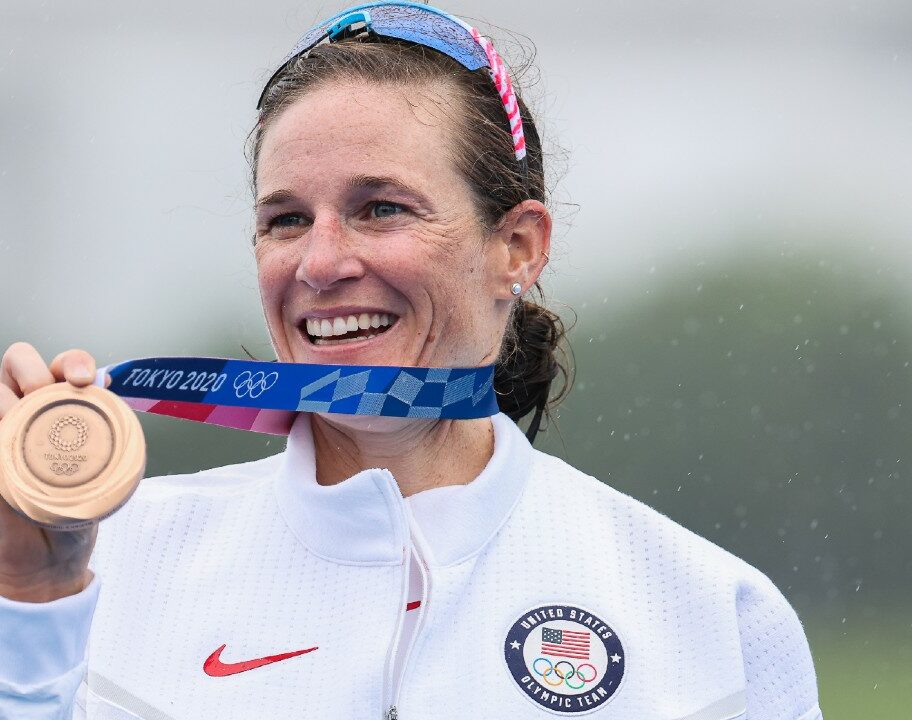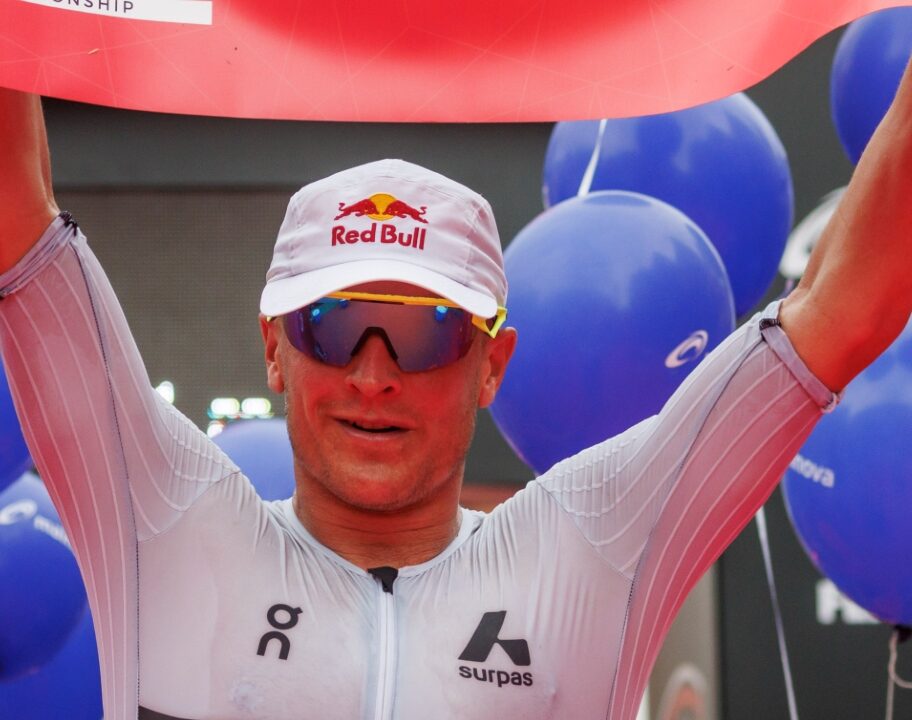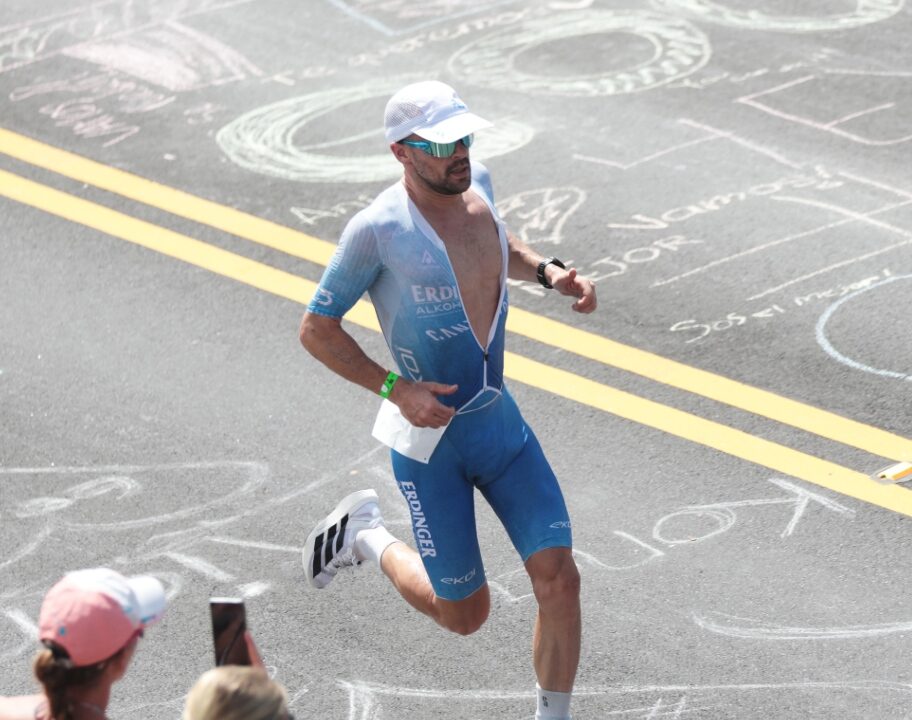The sports supplement industry is booming, as more of us look to take a holistic approach to improving our sports performance and taking care of our overall health and wellbeing. But if you believed every marketing claim about the latest ‘you absolutely cannot live without’ supplement. We’d probably all have enough pills, powders and potions knocking around to fully stock our own health stores.
You could quite easily find yourself spending a fortune on supplements every month, without really knowing if the supplements you’re taking are giving you any real benefits. So which supplements are actually worth taking for endurance athletes, such as triathletes? We spoke to registered dietitian and sports nutritionist Sam Ward RD from Total Endurance Nutrition to get her take on which supplements to consider taking. Plus, the ones you can swerve in favour of whole food alternatives.
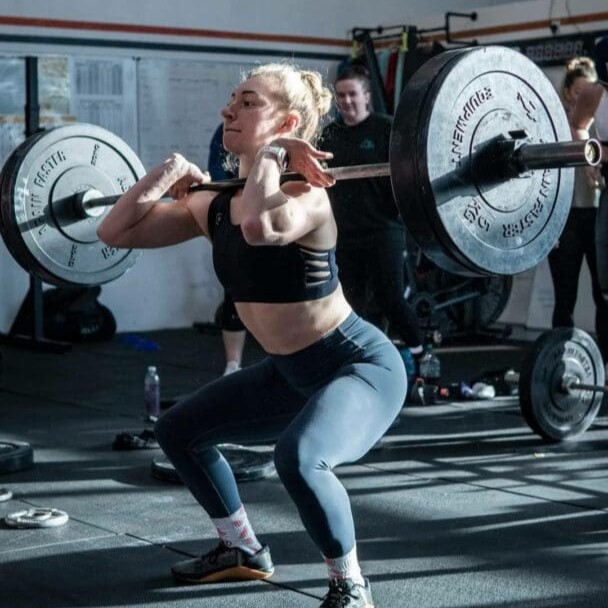
Beneficial supplements for triathletes
With three sports to train for, plus fitting in strength and conditioning work, triathlon puts a high demand on our bodies in training and on race day. And for age-groupers, the juggle of fitting in multiple training sessions a day around work and family commitments can often mean that recovery and nutrition are the first things to fall by the wayside as our schedules ramp up. Making it harder for our bodies to absorb the training, recover between sessions, and adapt to get the performance gains we’re working so hard to achieve.
Fuelling our bodies with a varied, colourful diet – balancing our macronutrients to ensure we’re getting enough carbohydrates, fats and proteins – can go a long way. But there are a few beneficial supplements that we can incorporate into our diets to give us a helping hand. From convenient energy sources to help us hit the prescribed intensity during sessions, to key micronutrients to help reduce injury risk, fatigue and inflammation.
Here are the supplements that Sam Ward RD sees as beneficial for endurance athletes:
Sports gels
“Sports gels provide easily digestible carbohydrates during training or racing,” says Sam. “They’re a convenient energy source and they’re often formulated with multiple carbohydrate types – such as glucose and fructose – to enhance carbohydrate absorption, while minimising gastrointestinal discomfort.”
“Athletes can aim for specific carbohydrate targets per hour, using gels alone or in combination with other sources.”
Sports drinks
“Athletes can use sports drinks to meet both their fluid and energy needs during training and racing,” Sam explains. “Sports drinks help to maintain hydration and electrolyte balance, and they can provide an additional carbohydrate source.”
“Sports drinks can be a helpful way to meet your hourly carbohydrate intake goal during training/racing. For example, drinking 600ml of a sports drink providing 35g of carbs, supplemented with a gel for an additional 25g, to achieve a 60g per hour carbohydrate intake.”
Hypotonic vs hypertonic vs isotonic: sports drink jargon explained
Take a look at a few different sports drinks, and you’ll probably start noticing they describe themselves as hypotonic, hypertonic or isotonic. But what does that actually mean – and should it influence which type you choose to use?
We’re essentially talking about concentration and osmosis here. The tonicity of a drink is important as it affects the amount of carbohydrate, fluid and electrolytes that enter your bloodstream, as well as how quickly your body can absorb them to boost your performance.
Isotonic drinks
Have a concentration similar to the blood. This allows for a relatively easy exchange of fluids between cells (osmosis) and delivers carbohydrates in greater amounts than a hypotonic drink but the fluids take a little longer to absorb into the blood stream. Some people may find that the higher carbohydrate concentration, particularly if using gels/bars in tandem, can cause GI issues.
HYPOtonic drinks
Have a lower concentration than the blood, which speeds up absorption but means they deliver less carbohydrate. Hypotonic drinks are useful when maintaining hydration is the main focus.
HYPertonic drinks
Have a higher concentration than the blood, and are useful when the main priority is delivering a large amount of carbohydrate into the bloodstream as they are absorbed faster than solid foods. However, hypertonic drinks can have a dehydrating effect as your body has to dilute them in the intestines.
Caffeine
Endurance athletes and coffee go together like peanut butter and jam. And the good news is, the caffeine in your morning cup of the good stuff can help to improve your sports performance.
“Caffeine improves alertness and decreases the rate of perceived exertion,” Sam explains. “It can directly boost performance through mechanisms like central nervous system stimulation and increased adrenaline release.”
“A recommended strategy is to consume 3-6mg of caffeine per kilogram of bodyweight to get the ergogenic effects. Longer events may require additional doses, but this should be trialled on an individual level.”
Many energy gels and bars these days include caffeine and provide information on the dosage on the packaging, which can help you to plan your strategy. However, it’s important to think about the timing of your caffeine intake, Sam highlights. “Due to a long half-life, it is not recommended to use caffeine for evening training sessions due to the negative impact on sleep quality.”
Beetroot juice
The taste might not be for everyone, but the high concentration of nitrates in beetroot juice supplements can actually help to improve your endurance sports performance – as long as you can take the taste!
“Beetroot juice is rich in nitrates. This enhances oxygen efficiency and in turn, endurance performance. Nitrates convert to nitric oxide in the body, which leads to vasodilation (the widening of blood vessels) and improved oxygen delivery.”
“Taking 300-600mg of nitrate (approximately 500ml beetroot juice or a 70ml concentrate shot) 2-3 hours before exercise can be beneficial.”
Take a look at our deep dive into the benefits of beetroot/nitrates for endurance sport performance here.
Iron (if you’re deficient)
“Iron is essential for oxygen transport, and endurance athletes – especially female athletes – are at a higher risk of deficiency.”
“Maintaining optimal iron levels helps to prevent fatigue and optimises endurance performance. If you’re deficient, it’s worth taking a supplement. Usage should be as per medical advice.”
Omega 3
“Omega 3 supports cardiovascular health, reduces inflammation and aids recovery from endurance training,” Sam explains.
If possible, it’s best to get your omega 3 from food. “The best sources of omega 3 are from oily fish – salmon, sardines and mackerel for example. You should aim for 2 servings a week. However, supplementation can be helpful if this is not met.”
“I’d recommend a dosage of 1-2g of combined EPA & DHA* per day. Plant-based athletes can use algae supplements.”
*EPA and DHA are two types of omega 3 fatty acids, eicosapentaenoic acid and docosahexaenoic acid.
Vitamin D
“Vitamin D helps with calcium absorption and can reduce the risk of stress fractures. It also supports muscle function, immune system, and overall performance.”
“For endurance athletes, maintaining adequate vitamin D levels can also help to reduce illness – especially during the winter months. It may also improve muscle strength and reduce injury risk. Low levels are linked to fatigue, and a decreased aerobic capacity. “
“Sunlight exposure (10-30 minutes) can help to achieve adequate vitamin D levels. The duration required varies based on skin type, location and the season. However in regions like the UK, where sunlight is limited during the winter months (October-March), supplementation becomes particularly important to maintain optimal levels.”
“Supplementation can be dosed at 1000-4000 IU per day, depending on individual needs and blood levels.”
Supplements that aren’t worth it for triathletes
So those are the key, beneficial supplements for triathletes to consider to help support their training and recovery. There are plenty of other supplements out there which may hold further benefits. Stay tuned because we’ll soon be taking a deep dive into collagen and creatine supplementation for endurance athletes with Dr Emily Jevons.
But what are the supplements that expert nutritionist Sam Ward feels simply aren’t worth it for triathletes?
Branched-Chain Amino Acids (BCAAs)
BCAAs are three types of amino acids (building blocks that form protein): leucine, isoleucine, and valine. The body can’t produce BCAAs, and therefore intake has to come from dietary sources. Specific BCAA supplements are often sold separately to general protein supplements with a focus on building and repairing muscles.
However, taking a separate BCAA supplement is unnecessary says Sam. “Whole protein sources such as whey, casein and food sources, provide all the essential amino acids – making BCAAs redundant.”
“A better alternative is to follow a high-protein diet, or if necessary use a complete protein supplement.”
So if you’re buying BCAA supplements alongside your usual complete protein powder, you can probably save yourself some money and leave the BCAA out of your cart next time.
High dose antioxidant supplements (vitamin C & vitamin E in large doses)
Research* has suggested that an antioxidant rich diet can help to counteract oxidative stress of exercise which can contribute to muscle damage and fatigue. Which might lead you to believe taking a high dosage supplement is a no-brainer. But as Sam explains, “while antioxidants are essential, excessive supplementation may blunt training adaptations.”
“It’s better to get your antioxidants from whole foods: fruits and vegetables.”
*Clemente-Suarez et al., (2023) Antioxidants and Sports Performance, Nutrients 15: 2371. doi: 10.3390/nu15102371
Greens powders
Greens powders have grown in popularity, and while they can help to top up your micronutrient levels, Sam says you’re better off just prioritising whole foods. “Powders can provide some vitamins and minerals, but they often lack the full nutrient profile found in whole foods. And they’re also very expensive!”
“Instead, eating a variety of fresh vegetables, fruits and plant-based foods ensures you’re getting a wide range of nutrients in their most bioavailable form and with adequate fibre.” If possible – you’re better off eating your greens, instead of drinking them!
Further reading
- Macronutrients for triathletes – expert tips on balancing your intake
- How to fuel your triathlon training – sports nutrition advice for before, during and after training

